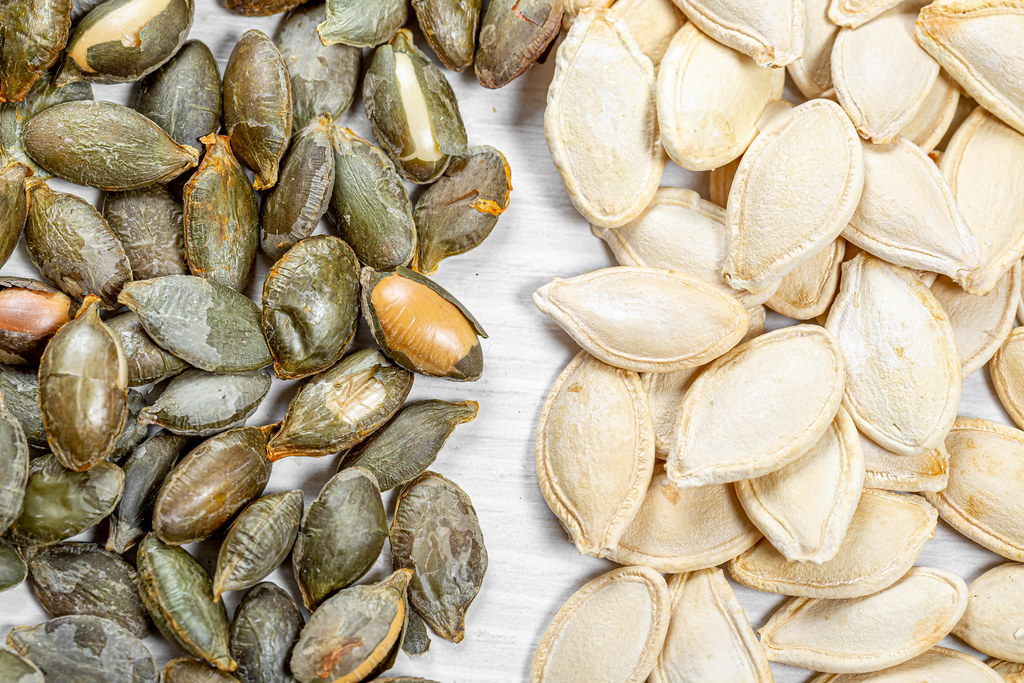
When it comes to supporting weight loss and maintaining healthy blood sugar levels, pumpkin seeds are a small but mighty powerhouse. These nutritious seeds are not only delicious but also offer a range of health benefits that can aid in your weight management journey. From promoting satiety to regulating blood sugar, let’s explore the benefits of pumpkin seeds and how they can contribute to your overall well-being. 🎃🌱💪
1. High in Fiber for Satiety and Digestive Health 🌾🍽️
Pumpkin seeds are an excellent source of dietary fiber, which plays a crucial role in weight loss. Fiber helps promote feelings of fullness and satiety, preventing overeating and unnecessary snacking. By incorporating pumpkin seeds into your diet, you can increase your fiber intake and support a healthy digestive system. The fiber content of pumpkin seeds also aids in maintaining regular bowel movements and promotes overall digestive health. Embrace the fiber-rich goodness of pumpkin seeds and support your weight management goals. 🌟🍽️💚
2. Healthy Fats for Sustained Energy and Appetite Control 🥜💫
Pumpkin seeds are rich in healthy fats, including monounsaturated and polyunsaturated fats. These fats provide a source of sustained energy and contribute to feelings of satiety. By incorporating pumpkin seeds into your meals or snacks, you can help curb cravings, keep your energy levels stable, and reduce the likelihood of overeating. The healthy fats in pumpkin seeds also play a role in supporting brain function and promoting overall cardiovascular health. Embrace the nourishing power of pumpkin seeds and fuel your weight loss journey. 🌟🥜💪
3. Nutrient Density for Overall Wellness 🌿🌟
Pumpkin seeds are packed with essential nutrients, making them a valuable addition to any diet. They are rich in important minerals such as magnesium, iron, zinc, and potassium. These minerals play crucial roles in various bodily functions and contribute to overall wellness. By incorporating pumpkin seeds into your diet, you can nourish your body with these vital nutrients, supporting your weight loss goals while promoting optimal health. Embrace the nutrient-dense nature of pumpkin seeds and give your body the care it deserves. 🌟🌿💚
4. Plant-Based Protein for Muscle Maintenance 💪🌿🍽️
Protein is an essential nutrient for weight loss, as it helps preserve muscle mass and supports feelings of fullness. Pumpkin seeds are a great plant-based source of protein, making them an ideal addition to a vegetarian or vegan diet. Protein aids in muscle repair and maintenance, which is crucial for a healthy metabolism and achieving your weight loss goals. By incorporating pumpkin seeds into your meals or snacks, you can benefit from the protein content and support your body’s muscle health. Embrace the plant-powered benefits of pumpkin seeds and empower your weight management journey. 🌟💪🥗
5. Versatile and Delicious Addition to Meals and Snacks 🍽️🌿🎃
One of the great things about pumpkin seeds is their versatility. They can be enjoyed in various ways, from sprinkling them over salads and roasted vegetables to adding them to homemade granola or trail mix. Pumpkin seeds can also be incorporated into baked goods like bread or muffins. Their nutty and slightly sweet flavor adds a delightful crunch and depth to your meals and snacks. By getting creative in the kitchen and experimenting with different recipes, you can enjoy the benefits of pumpkin seeds while elevating your culinary experience. Embrace the versatility of pumpkin seeds and let them be a tasty companion on your weight loss journey. 🌟👩🍳🎃
Incorporating pumpkin seeds into your diet offers a range of health benefits for weight loss and blood sugar control. Their high fiber content promotes satiety and digestive health, healthy fats provide sustained energy and appetite control, nutrient density supports overall wellness, plant-based protein aids in muscle maintenance, and their versatility adds flavor to your meals and snacks. Embrace the power of pumpkin seeds and let them be a nourishing part of your weight management journey. 🎃🌱💪









